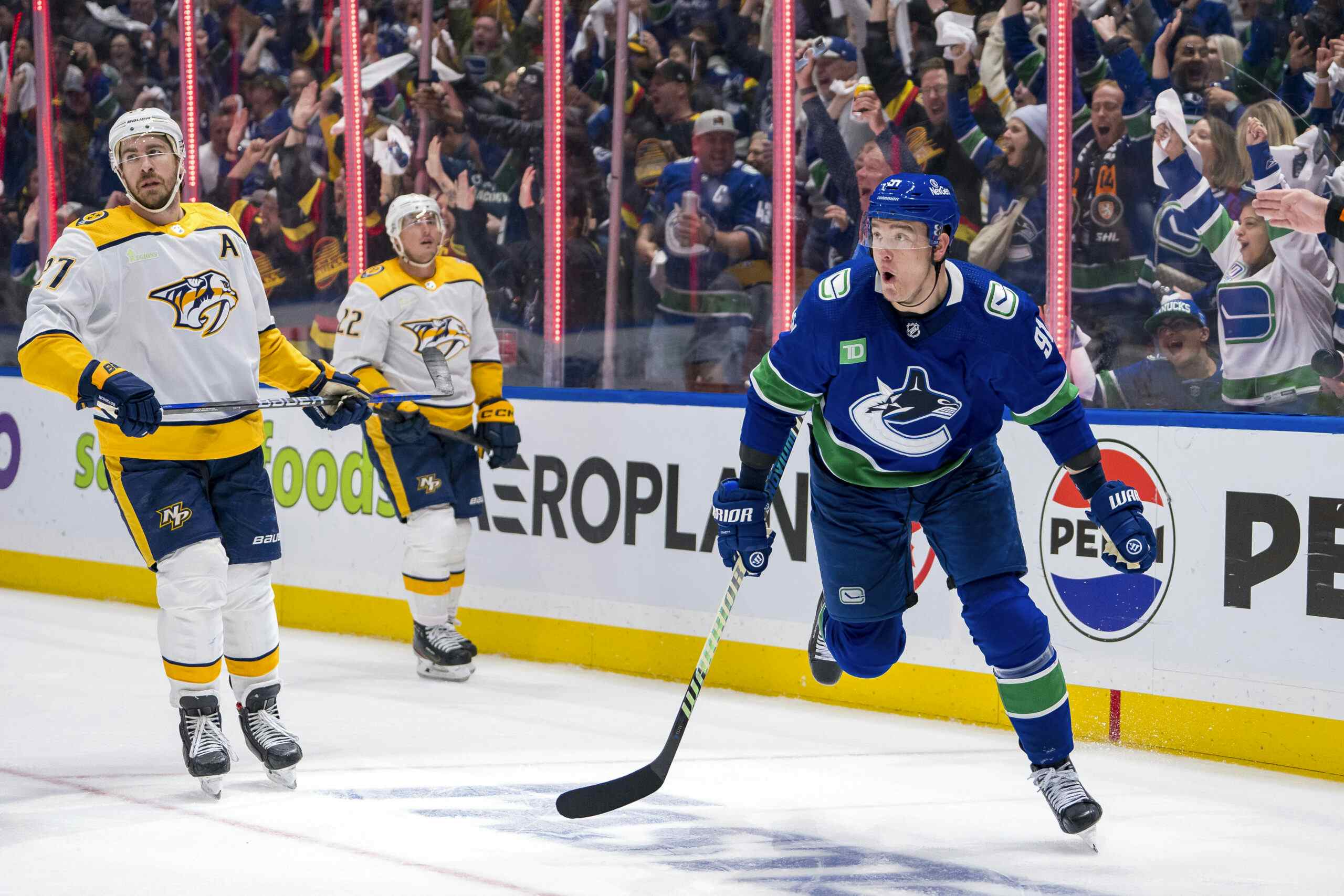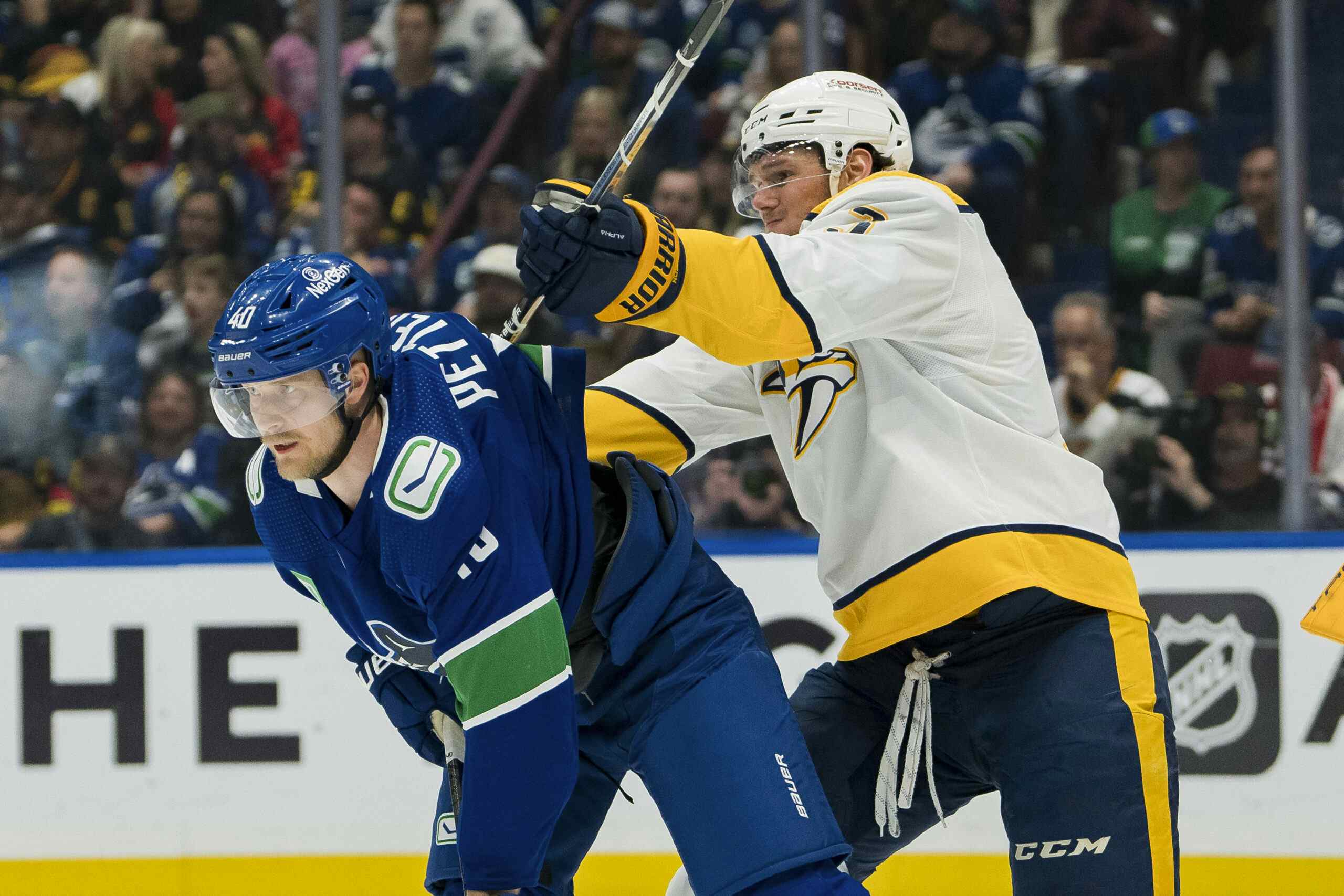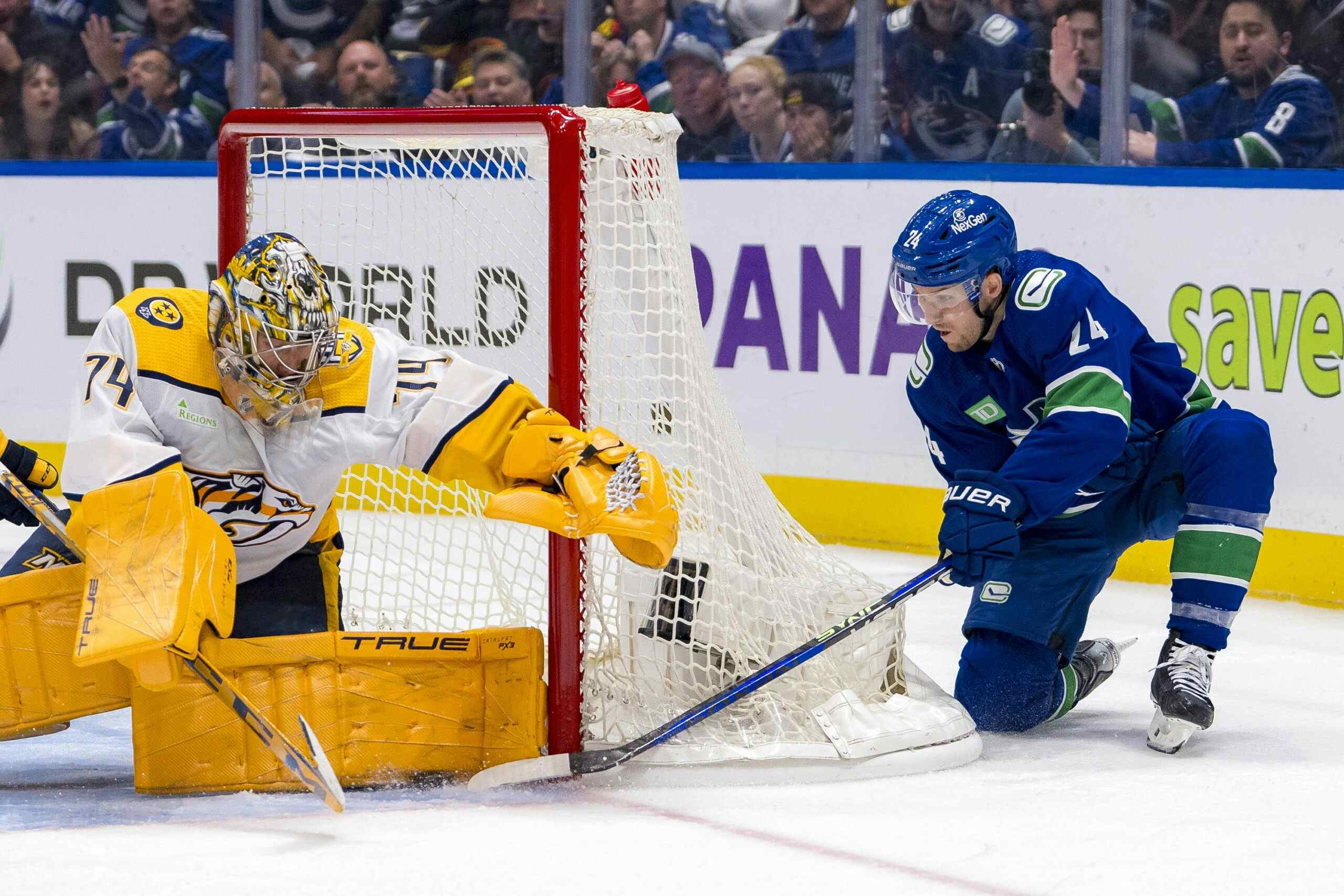The Canucks Are Leaving Valuable Points on the Table
The Canucks have made a bad habit of leaving points on the table thus far this season. Last night in Los Angeles they padded their league-worst overtime record, adding yet another discouraging late game result to what’s becoming a rapidly growing list of such outcomes.
It’s more than just a worrisome trend to keep an eye out for by now, for a team that’s margin for error has been dwindling for some time now. The same tightrope balancing act they managed to parlay into a playoff appearance last year has left them out to dry in this go-around. Regression has pushed them off of that rope, and without a safety net around to cushion the landing they’ve fallen flat on their collective faces.
As we made mention of earlier, the Canucks were the beneficiaries of an abnormally high success rate in games decided by one goal in 2014-15. The sledding has been noticeably tougher so far this year in such situations. Those struggles have only been intensified by the fact that the 17 one-goal games they’ve participated in are tied for a league-high with the Wild. Minnesota, fortunately for them, has won 6 more such contests than the Canucks have:
| 2014-15 | 2015-16 | |
|---|---|---|
| 1 Goal Game Record | 22-4-5 | 3-6-8 |
| Overtime Record | 6-3 | 0-7 |
| Shootout Record | 6-2 | 1-1 |
It’s the nature of the beast. Hockey gives, and then it takes away. It’s why genuinely good teams generally sustain their success by limiting the potential impact that puck bounces have on their outcomes, in turn controlling their own fate.
One area this team has particularly struggled in has been the 3-on-3 overtime. Last week I went back and watched every single extra frame that’s taken place this season, in the hopes of gleaning something from it about certain trends or habits that keep recurring and influencing the results. While we still have such a small sample of data to work with, something I noticed was how important the counter attack was. A significant majority of the goals scored come from such situations, where a team lays in the weeds and times their rush the other way perfectly:

It’s interesting that only ~20% of the goals have come from sustained possession in the offensive zone. Based on that then maybe it shouldn’t be all that surprising that the Canucks have struggled to pull some of these games out.
Blaming Alex Edler for his disastrous giveaway that lead directly to the game winner is an easy angle. But it doesn’t excuse the fact that the team as a whole has yet to find the back of the net in nearly 20 minutes of action. Their two most dangerous weapons – and two most frequently used players in these situations – have made a living off of wearing the opposition down in their own zone via the cycle. What’s made them such effective players over the years has been their precise passing, which has allowed them to take advantage of small windows and areas that would be too tight for most NHL players to effectively operate in.
At 3-on-3, the ice surface has opened up and as a result in some way levelled the playing field for the opposition. Oddly enough, while it’s made the action generally far more exciting across the board it’s also allowed everyone else to catch up with the Sedins. Maybe even surpass them, given how much of an asset fresh legs and speed have shown themselves to be.
It’s quite possible that the Sedins will eventually figure it out, and find a creative way to overcome the change in circumstances. They’ve certainly shown the ability to do so throughout their careers. Quite possibly their most dangerous scoring chance yet came seconds after an opening draw against the Ducks, where Henrik pushed the puck forwards and sprang Daniel for a glorious look:



In the meantime, it would behoove Willie Desjardins and his staff to open up the playbook a little bit and experiment with different combinations. Just because someone like Jared McCann is young shouldn’t disqualify him from getting a chance to see if he can be more effective than what they’ve been using to-date. He’s been on the ice for less than 10% of their 3-on-3 time this season.
Something ultimately needs to give. This version of the Vancouver Canucks isn’t good enough in the other areas of the game to keep settling for the loser point. Especially given how minuscule the gap between making and missing the playoffs in the Pacific Division is once again shaping up to be.
Recent articles from Dimitri Filipovic





